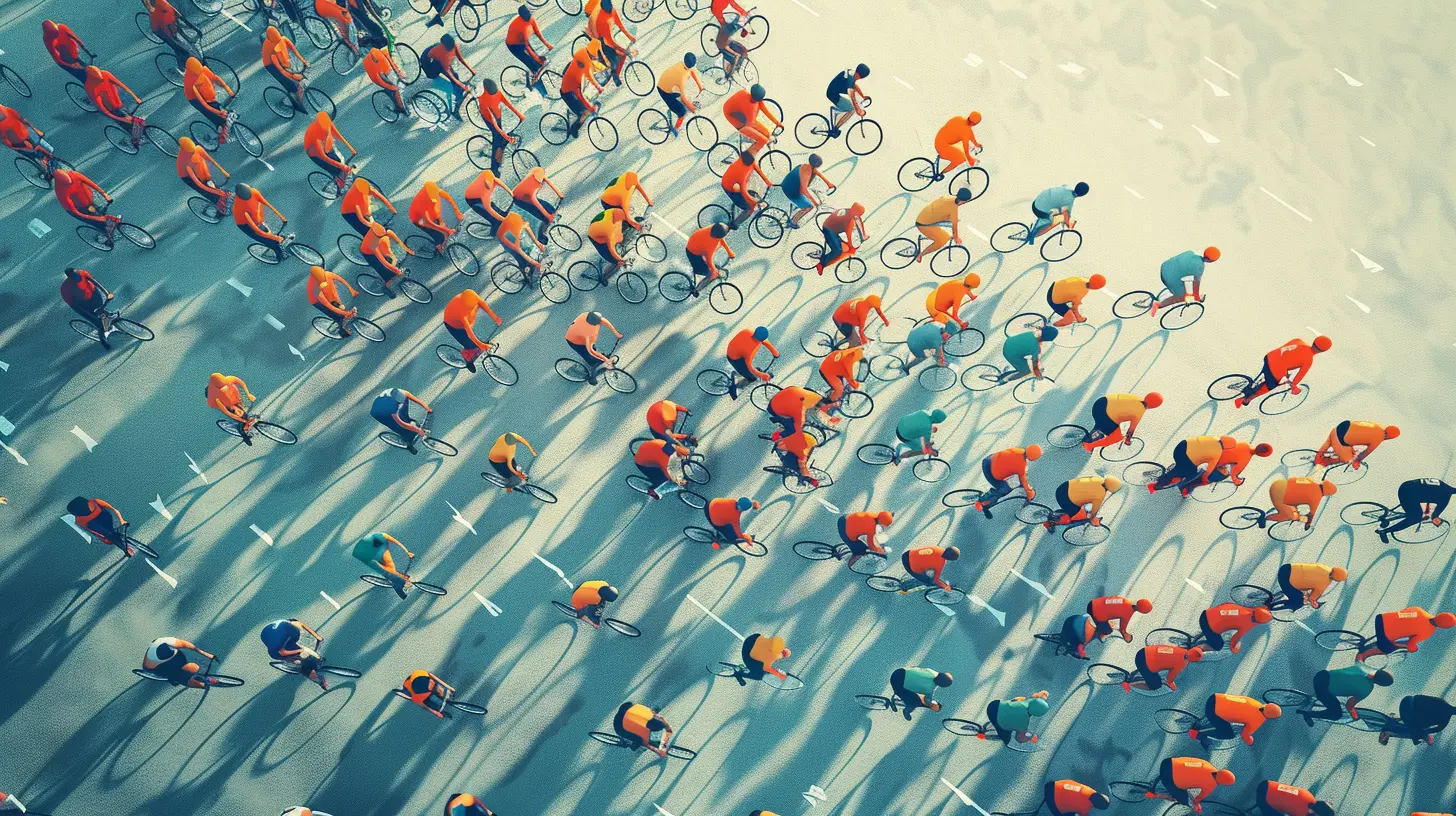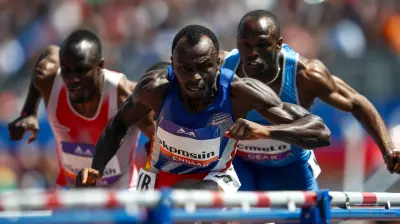How Public Perception Changes After Doping Scandals
10 October 2025
Sports are often seen as a symbol of human potential, a display of hard work, discipline, and sheer willpower. We rally behind our favorite athletes, cheering for them as they push their bodies to the limit, achieving what seems impossible. But what happens when that image shatters? When the athletes we've idolized are caught using performance-enhancing drugs (PEDs), everything changes. Public perception, which once held those athletes in the highest regard, shifts dramatically. In this article, let's dig deep into how public perception changes after doping scandals and why the fallout is often so intense.

The Initial Shock: The Fall From Grace
You know that feeling when you find out a friend has betrayed your trust? It’s a gut-punch. Doping scandals have a similar effect on fans and the general public. Athletes are often perceived as role models, people who have earned their success through grit and determination. So, when news breaks that someone has been using PEDs, there's a sense of betrayal.The initial reaction is usually shock. Whether it's Lance Armstrong, Maria Sharapova, or Ben Johnson, the world stops for a moment. Fans who once wore their jerseys, hung posters, or shouted their names from the stands feel almost personally let down. It's like finding out a magician's trick was fake all along. The sense of awe disappears, replaced by disappointment and anger.
Why The Shock Is So Strong
Why do we care so much? Well, part of it comes from the fact that sports are more than just entertainment. We invest emotionally in athletes. We see in their victories our own potential for greatness. When they win, we feel like we're winning too. So, when they're revealed to be cheating, it feels like we've been deceived. The emotional investment backfires, and it stings.Athletes are also seen as ambassadors of fairness. Sports are supposed to be a level playing field where the best man or woman wins. Doping, however, gives athletes an unfair advantage, and that undermines the very spirit of competition. It's like showing up to a race with a jetpack when everyone else is on foot.

The Media Frenzy: Fuel to the Fire
As soon as a doping scandal breaks, the media jumps on it like wildfire. And we all know how the media works – the more sensational the story, the greater the coverage. Every detail of the athlete’s life gets scrutinized. News outlets, blogs, and social media platforms buzz with opinions, analyses, and reactions. This amplifies the public's sense of betrayal.The media's role is undeniable in shaping public perception. The narrative is often framed in such a way that the athlete is vilified. Headlines scream words like "disgraced," "cheater," and "fallen star." It's hard for any athlete to come back from that kind of framing, and the public eats it up.
The Role Of Social Media
If the traditional media sets the stage, social media is the megaphone. Platforms like Twitter, Instagram, and Facebook allow fans and critics alike to share their thoughts, often in real-time. Hashtags trend, memes are created, and before you know it, the athlete’s reputation is in tatters.Social media is also relentless. Unlike traditional news cycles that eventually move on, social platforms can keep a scandal alive for years. Just when an athlete thinks they've moved past a doping scandal, they’ll see a tweet or a post reminding them – and everyone else – of their past mistakes.

The Long-Term Impact on Athletes' Legacies
For many athletes caught in doping scandals, their legacy takes a permanent hit. Athletic accomplishments that once seemed groundbreaking are now viewed with suspicion. Did they win because they were truly the best, or was it the drugs? That question lingers, often overshadowing any legitimate success they might have achieved.Take Lance Armstrong as an example. Here was a man who beat cancer and went on to dominate the Tour de France seven times. He was a hero to millions – until it was revealed that he had used PEDs throughout his career. Now, when people think of Armstrong, they don’t remember his victories or his inspiring battle against cancer. They remember the doping. His name is synonymous with cheating, and that’s a legacy he’ll never shake.
Records Stripped, Trust Lost
In many cases, athletes caught doping not only lose the public's trust but also their records. Medals are stripped, titles revoked, and endorsements vanish into thin air. It’s as if their achievements never existed. And that’s the thing – in the eyes of the public, they didn’t. Those wins are now seen as fake, and the athlete’s reputation is forever tarnished.Even if an athlete manages to keep some of their accolades, there's always an asterisk next to their name in the minds of fans. It’s the same as having a permanent mark on your record. No matter what they achieve afterward, the scandal is the first thing people will remember.

Redemption: Is It Possible?
Interestingly, not all athletes remain in the public's bad books forever. Some manage to rehabilitate their image, though it’s an uphill battle. The road to redemption often involves apologies, community service, or public displays of contrition. But let’s be real – not everyone gets a second chance.Athletes like Maria Sharapova, who admitted to unintentionally using a banned substance, have managed to somewhat rebuild their image. While some fans never forgave her, others accepted her apology and moved on. She continued to play and even gained new sponsorships after serving her suspension. Her case illustrates that redemption is possible, but it’s never guaranteed.
The Importance Of Transparency
One of the keys to regaining public trust is transparency. Athletes who come clean, explain their side of the story, and show genuine regret are sometimes given more leniency. The public doesn’t necessarily expect athletes to be perfect, but they do expect honesty. When athletes attempt to cover up their actions or deny wrongdoing, the backlash is often much harsher.Lance Armstrong, for example, spent years vehemently denying any involvement with doping, even suing those who accused him. When the truth finally came out, the public’s anger was even more intense because it felt like a prolonged deception. His eventual confession on Oprah’s show was too little, too late.
The Role of Governing Bodies: Trust in the System
While athletes are the ones directly involved in doping scandals, sports governing bodies aren't immune to the fallout. When a major doping scandal breaks, people often begin to question the integrity of the entire sport. How did this go unnoticed for so long? Was the governing body complicit? Did they turn a blind eye?Take the International Olympic Committee (IOC) or cycling's governing body, the UCI. After numerous doping scandals, especially in cycling, many fans began to question whether these organizations were doing enough to keep the sport clean. Trust in the system erodes, and it takes years – sometimes decades – to rebuild.
Stricter Regulations and Testing
In response to doping scandals, governing bodies often implement stricter testing and harsher penalties. The World Anti-Doping Agency (WADA) has continuously updated its list of banned substances, and testing has become more rigorous. However, with each new scandal, the question remains: Is it enough?The public wants to believe that the athletes they’re watching are clean, but skepticism remains. And who can blame them? After years of high-profile doping cases, it’s hard not to view incredible athletic feats with a bit of suspicion.
The Impact On The Sport as a Whole
Doping scandals don’t just affect the athletes involved; they impact the entire sport. Fans may lose interest, sponsors might pull their support, and the overall reputation of the sport can take a nosedive. If people believe that most athletes in a particular sport are doping, they may stop watching altogether. After all, who wants to watch a competition that feels rigged?Take cycling as an example again. After the Lance Armstrong scandal, the sport saw a significant drop in viewership. Fans felt disillusioned, and sponsors were hesitant to associate their brands with a sport that had become synonymous with cheating. It took years for cycling to regain some of its lost popularity, and even then, the shadow of doping still looms.
Moving Forward: Can We Ever Fully Trust Again?
So, where does that leave us? Can fans ever really trust athletes again after so many doping scandals? It’s a tough question. On one hand, we want to believe that most athletes are clean, that their achievements are the result of hard work and talent. But on the other hand, history has shown us that some will always be tempted to take shortcuts.What we can hope for is continued transparency and accountability. Athletes, governing bodies, and even fans need to hold each other to a higher standard. Doping scandals will likely never disappear entirely, but with stricter regulations, better testing, and more openness, we can at least minimize the damage they cause.
That said, the public’s trust is fragile. Once it’s broken, it’s incredibly hard to repair. Athletes who cheat may find themselves forever defined by their mistakes, no matter what they accomplish afterward.
all images in this post were generated using AI tools
Category:
DopingAuthor:

Onyx Frye
Discussion
rate this article
1 comments
Devin McKenzie
Doping scandals dramatically shift public perception, often leading to distrust in athletes and organizations. However, they also spark important conversations about integrity and accountability in sports.
October 27, 2025 at 12:22 PM

Onyx Frye
Thank you for your insightful comment! Indeed, doping scandals not only impact trust but also highlight the critical need for integrity and transparency in sports.


